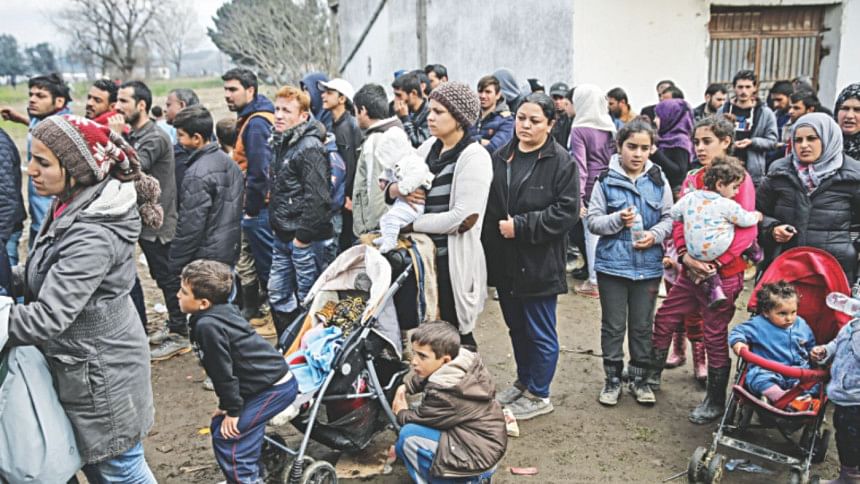EU, Turkey strike migrant deal

EU leaders approved a controversial deal with Turkey to curb the huge flow of asylum seekers to Europe, with all migrants arriving in Greece by Sunday to be sent back.
Finland's Prime Minister Juha Sipila said the 28 EU leaders approved yesterday the deal negotiated with Turkish Prime Minister Ahmet Davutoglu in a bid to end an unprecedented crisis dividing the continent.
"The Turkey deal was approved," Sipila wrote on Twitter. Czech Prime Minister Bohuslav Sobotka confirmed that the expulsion of migrants arriving on the Greek islands would begin on Sunday.
"Deal with Turkey approved. All illegal migrants who reach Greece from Turkey as of March 20 will be returned!" Sobotka wrote on Twitter.
More than 1.2 million migrants have come to Europe since January 2015 in the continent's biggest migration crisis since World War II, and around 4,000 have drowned while trying to cross the Aegean Sea between Turkey and Greece.
But the deal comes at a heavy cost for Europe, with many members of the bloc expressing misgivings about the legality of the deal and Turkey's human rights record.
Turkey has demanded an acceleration of its long-stalled bid for EU membership, the doubling of refugee aid to six billion euros ($6.8 billion) and visa-free travel in return for taking back all new irregular migrants coming to Greece, the main entry point to Europe.
Davutoglu is now set to formally sign off on the accord at a final meeting with EU leaders.
"Tusk's proposal for the EU-Turkey agreement approved by EU leaders, in principle, as it is now up for final talks with the Turkish prime minister," a senior EU official told AFP.
But in a sign of the tensions that remain between Ankara and Brussels, President Recep Tayyip Erdogan blasted several EU states for taking only a "handful of refugees" in contrast to the nearly three million Turkey has admitted, most of them fleeing the Syrian war.
Erdogan also accused the Europeans of supporting the outlawed Kurdistan Workers' Party (PKK) days after a bombing in Ankara claimed by Kurdish rebels allegedly linked to the group.
"European countries are paying no attention, as if they are dancing in a minefield," he said.
Critics have said the mass expulsion planned under the EU-Turkey deal could infringe international law on the treatment of asylum seekers.
Under the terms of the plan, the EU would take in one Syrian refugee from Turkish soil in exchange for every Syrian readmitted to Turkey from Greece.
The move is meant to discourage them from risking their lives in often rickety and overcrowded boats operated by smugglers.
EU officials insisted the deal would be stressed repeatedly each application would be treated individually, with full rights of appeal and proper oversight.

 For all latest news, follow The Daily Star's Google News channel.
For all latest news, follow The Daily Star's Google News channel. 



Comments